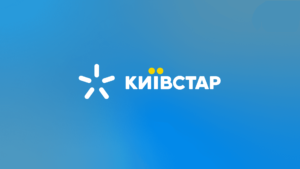
Kyivstar, Ukraine’s largest mobile operator, has signed an agreement to acquire 100% of the shares of the digital medical goods service Tabletki.ua (MTPC LLC) for the hryvnia equivalent of $160 million, according to a press release issued by the company on Tuesday.
“We will be able to combine Kyivstar’s successful experience in digital business management and development with Tabletki.ua’s strong foundation to make digital medical services more accessible to a wider audience and ensure the best convenience for everyone,” said Kyivstar President and CEO Alexander Komarov.
Kyivstar Group shares on the Nasdaq rose 2% on Tuesday to $2.5 per share.
According to YouControl, the owners of MTPC LLC are Alexander, Natalia, and Yevgeny Muravshchiki (23%, 23%, and 10%, respectively), Yuri Savin (20%), Vladimir Osmachko (15%), and Vadim Rogatinsky (9%).
In its presentation of the deal, Kyivstar pointed to potential synergies with other businesses in its group: the development of a digital health ecosystem, the enrichment of mobile data to increase user engagement and accessibility.
“Synergy between Kyivstar (telecommunications company), Helsi (largest provider of SaaS services in the field of electronic health), Uklon (delivery), and Tabletki.ua (leading market for medicines) to provide significant benefits to customers,” the document says.
It is noted that the service cooperates with more than 14,000 pharmacies throughout Ukraine and, according to 2025 data, provided 14 million online orders per month.
The operator specified that, according to unaudited management reports, Tabletki.ua’s EBITDA profit grew by 34% to UAH 755 million in the first nine months of 2025, while in 2024 it grew by 86% to UAH 810 million.
In dollar terms, EBITDA increased by 29% over nine months to $18 million, compared to 69.4% in 2024 to $20 million.
The company’s net profit for the first nine months of last year amounted to UAH 682 million ($16 million) compared to UAH 707 million ($17.6 million) for the whole of last year, while the total value of goods (GMV – gross merchandise value) booked through the platform amounted to UAH 43 billion ($1.034 billion) and UAH 45 billion ($1.056 billion), respectively. According to the presentation, 85% of the company’s revenue comes from transactions and subscriptions, while another 12.2% comes from advertising.
Kyivstar specified that as of the end of September 2025, the 12-month (LTM) GMV was UAH 57.3 billion ($1.191 billion), EBITDA was UAH 1 billion ($24 million), and net profit was UAH 836 million ($20 million).
Thus, Tabletki.ua’s EV/EBITDA ratio was 6.7 times, and its P/E ratio was 8 times. In 2025, Kyivstar closed a deal to acquire 97% of Uklon’s corporate rights for $155.2 million, with the EV/EBITDA multiple of that deal being approximately the same.
As reported, at the end of January this year, the Antimonopoly Committee of Ukraine (AMCU) allowed Kyivstar to acquire control over the Tabletki.ua service, although Kyivstar submitted its first application to acquire MTPC back in November 2024.
In the third quarter of 2025, Kyivstar received EBITDA of UAH 7.1 billion, which is 21.5% more than in the third quarter of 2024, and in dollars, the growth was 20.4% – to $171 million.

Possible merger of tower companies Ukraine Tower Company (UTC) and Ukrainian Network Solutions (UNS), which are associated with the largest mobile operators Kyivstar and Vodafone Ukraine, will lead to monopolization and structural imbalance in the telecom market, according to their smaller competitor Lifecell LLC (TM lifecell).
“Given the significant impact on the market and millions of consumers, the agreement should be reviewed openly and transparently, with the involvement of all market participants and the expert community,” the operator said in a press release on Monday, as reported by Interfax-Ukraine.
According to lifecell, such a merger could affect the pace of innovation and weaken the focus on subscriber needs.
The operator also stressed that the potential deal could threaten the security of national communications as a whole and limit investment in Ukraine.
“Excessive concentration of critical infrastructure in one hand may be perceived as a signal of increased risk, deterring investment in the telecommunications sector,” lifecell explained its position.
The company stressed that decisions regarding the possible merger of tower stations must be made with consideration for the long-term consequences for competition, the development of the telecom market, and the country’s security.
At the end of January, it was reported that UTC, the tower business of the telecommunications holding company VEON, which owns Ukraine’s largest mobile operator Kyivstar, is trying to get the Antimonopoly Committee of Ukraine (AMCU) to approve a merger with UNS , the tower asset of the country’s second-largest mobile operator, Vodafone Ukraine.
At that time, Forbes Ukraine explained that the merger of the tower companies VEON and Vodafone Ukraine could be linked to a desire to sell them to a third party on more favorable terms, with a price tag of $300 million.
According to Forbes Ukraine’s calculations, UNS’s revenue for the first nine months of 2025 reached UAH 528.8 million, with annual EBITDA of about $15 million and UTC of UAH 2.1 billion and $50-60 million, respectively.
At the same time, lifecell also has a tower asset: according to YouControl, its revenue for the first nine months of 2025 amounted to UAH 461.0 million, with a net profit of UAH 202.2 million.
According to data from the regulator NCEK, the top three leaders in terms of revenue from telecommunications services for the first nine months of 2025 in Ukraine were mobile operators Kyivstar with UAH 32.35 billion, Vodafone Ukraine (UAH 18.88 billion), and lifecell from the DVL group (UAH 11.58 billion).

According to the results of 2025, Kyivstar, Ukraine’s largest mobile operator, increased its revenue and EBITDA by 24-26%, exceeding the forecast announced in November 2025, according to a press release from telecommunications holding company VEON, the main shareholder of Kyivstar Group with an 89.6% stake.
According to preliminary unaudited estimates, capital expenditures in 2025 are expected to be in the range of 29-31% of revenue.
VEON expects the results to exceed the 2025 forecast published on November 10, 2025, along with the financial results for the third quarter of 2025, the release said.
As reported, Kyivstar served 22.5 million mobile subscribers in the third quarter of 2025, down 3.6% from the previous year, while the number of 4G customers grew by 2.4% to 15 million.
In the third quarter of 2025, the company’s EBITDA was UAH 7.1 billion, which is 21.5% more than in the third quarter of 2024, and in dollars, the growth was 20.4% to $171 million.
In the first half of 2025, Kyivstar increased its EBITDA by 32% to $06 million, while its revenue grew by 28% to $539 million.
In August 2025, Kyivstar Group Ltd. (Nasdaq: KYIV) announced the completion of its listing on the Nasdaq Stock Market LLC (Nasdaq) and the start of trading in the shares of the largest mobile operator Kyivstar under the ticker KYIV.

One of the priority areas for investment by Kyivstar, Ukraine’s largest mobile operator, is currently renewable energy sources (RES), in particular solar and wind energy, as well as energy storage systems, according to the company’s CEO, Alexander Komarov.
“We want to somehow reduce the risk of electricity supply and the risk of price increases, which is the fastest growing element of our operating costs,” Komarov said during a discussion at the Ukrainian House in Davos on the sidelines of the World Economic Forum, according to a correspondent from Interfax-Ukraine.
According to the CEO, the company is also interested in the e-commerce category and is currently looking for suitable offers.
At the same time, Komarov stressed that Kyivstar plans to strengthen its presence in every area in which the company operates.
In the third quarter of 2025, Kyivstar served 22.5 million mobile subscribers, which is 3.6% less than in the previous year, while the number of 4G customers increased by 2.4% to 15 million.
In the third quarter of 2025, the company’s EBITDA was UAH 7.1 billion, which is 21.5% more than in the third quarter of 2024, and in dollars, the growth was 20.4% to $171 million.
The main shareholder of Kyivstar Group, with an 89.6% stake, is the telecommunications holding company VEON, which was its 100% owner before Kyivstar was listed on the stock exchange.
From January 19-22, Ukraine House Davos 2026 is operating in Davos, co-organized by the Victor Pinchuk Foundation, the Ukraine-Moldova American Enterprise Fund, and Horizon Capital.

The National Commission for the Regulation of Electronic Communications and Postal Services (NCCEC) has extended the permit for Ukraine’s largest mobile operator Kyivstar to test Starlink Direct to Cell (D2C, direct satellite communication with a smartphone) technology until 20 April 2026, according to the approved decision.
The document states that testing may continue throughout Ukraine, with the exception of border areas, areas of military operations, and temporarily occupied territories.
The conditions stipulate that the operator must use the 1725-1730 MHz/1820-1825 MHz (2×5 MHz) bands, ensure territorial retreat from the borders with other states in the west of the country, and comply with measures to avoid radio interference with existing users of the radio frequency spectrum, according to the decision.
As reported, testing of Starlink Direct to Cell satellite communication technology, which allows users to exchange SMS messages in the absence of mobile communication but with direct visibility of the sky, became available in November to all Kyivstar subscribers in Ukraine who had compatible smartphones with 4G (LTE) support. The system operates via a network of more than 650 Starlink Direct to Cell satellites.
It was noted that voice calls and mobile internet are planned to be introduced in Starlink Direct to Cell in 2026.
In the third quarter of 2025, Kyivstar served 22.5 million mobile subscribers, which is 3.6% less than a year ago, while the number of 4G customers grew by 2.4% to 15 million.
In the third quarter, the company’s EBITDA profit amounted to UAH 7.1 billion, which is 21.5% more than in the third quarter of 2024, and in dollars, the growth was 20.4% to $171 million.
The main shareholder of Kyivstar Group, with an 89.6% stake, is the telecommunications holding company VEON, which owned 100% of Kyivstar before it was listed on the stock exchange.

Kyivstar, Ukraine’s largest mobile operator, will gradually update certain tariffs from December 18 this year and throughout early 2026 to compensate for the rising cost of key resources.
“Starting December 18, 2025, and throughout early 2026, the terms of some subscription rates will be gradually updated, and starting January 1, 2026, and over the course of several months, some contract and business rates will also be updated,” the company said.
It is noted that these conditions are being introduced due to the rise in the cost of key resources, in particular, electricity for businesses, which has risen by 60% during evening peak hours.
The technical community of the telecommunications market “Mobile Communications of Ukraine” reported on Telegram that the new tariffs will affect, among other things, the LOVE UA line. Specifically, LOVE UA Base will increase from 150 UAH to 200 UAH/4 weeks, LOVE UA Bezlim 2024 from 225 UAH to 300 UAH, LOVE UA Pesnya 2024 from 250 UAH to 300 UAH, LOVE UA Svet 2024 from 200 UAH to 260 UAH, LOVE UA Light 2024 (with the superpower Economy) will increase from 150 UAH to 200 UAH, and the LOVE UA Freedom 2024 tariff will increase from 125 UAH to 190 UAH.
Among other changes, the operator announced the expansion of the “Roaming as at home” service from 28 to 32 countries, including Iceland, Norway, Liechtenstein, and Cyprus, starting December 18.
For subscribers abroad, roaming limits of UAH 2,000 and UAH 4,000 will be introduced from January 1, which will help avoid unexpected Internet costs.
As reported, Kyivstar received EBITDA of UAH 7.1 billion in the third quarter of 2025, which is 21.5% more than in the third quarter of 2024, and in dollars, the growth was 20.4% to $171 million.
Kyivstar served 22.5 million mobile subscribers in the third quarter of 2025, which is 3.6% less than a year earlier, but the number of 4G customers grew by 2.4% to 15 million.